AWM41 1038 - [Nurses Narratives] Staff Nurse Vivian A Lee Shea
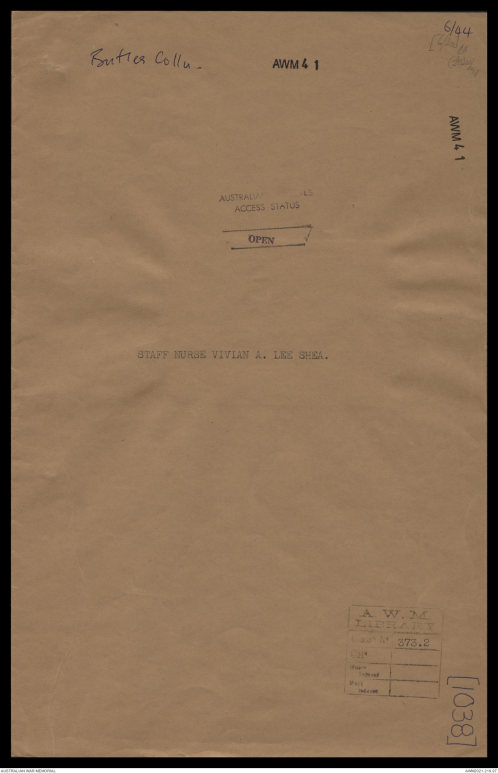
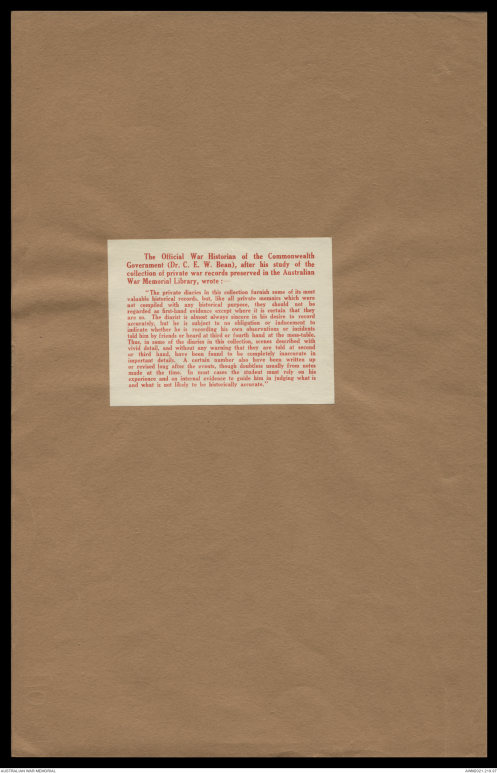
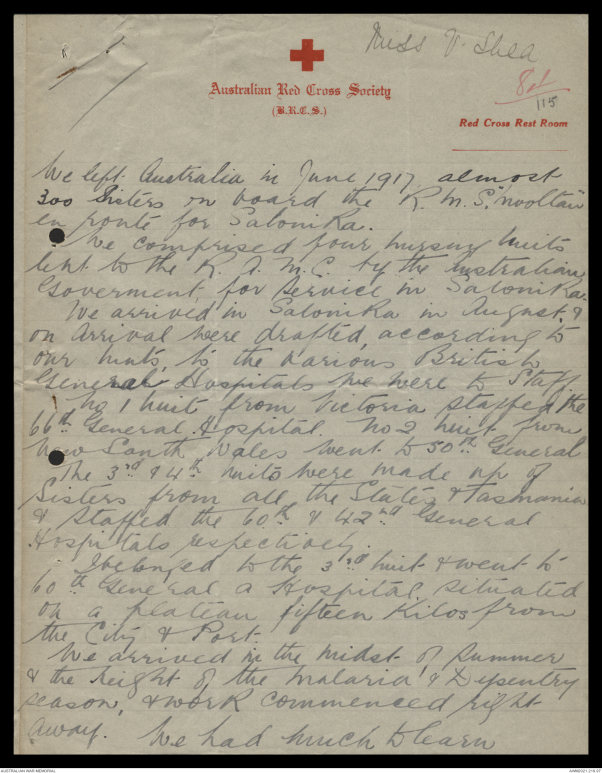
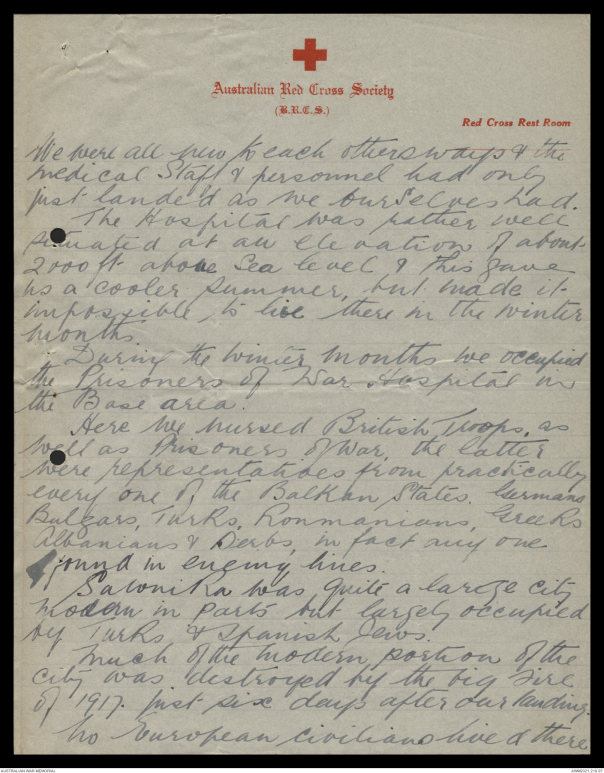
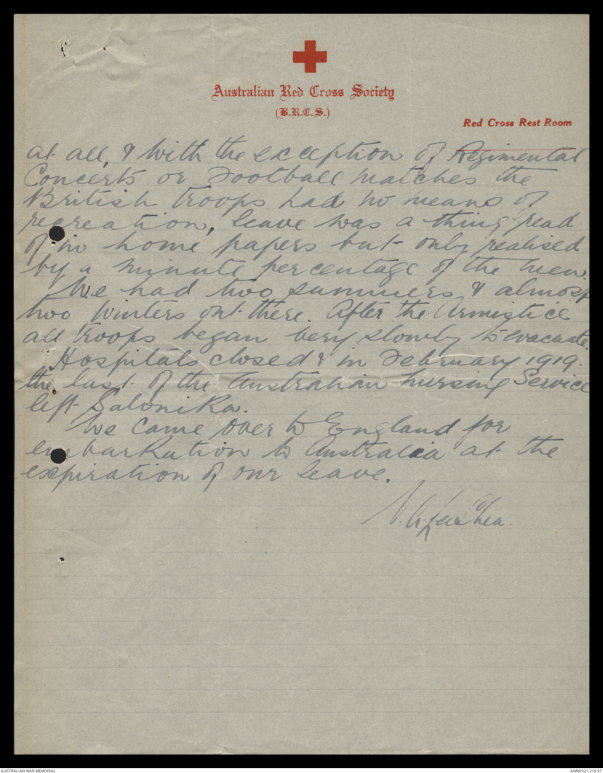
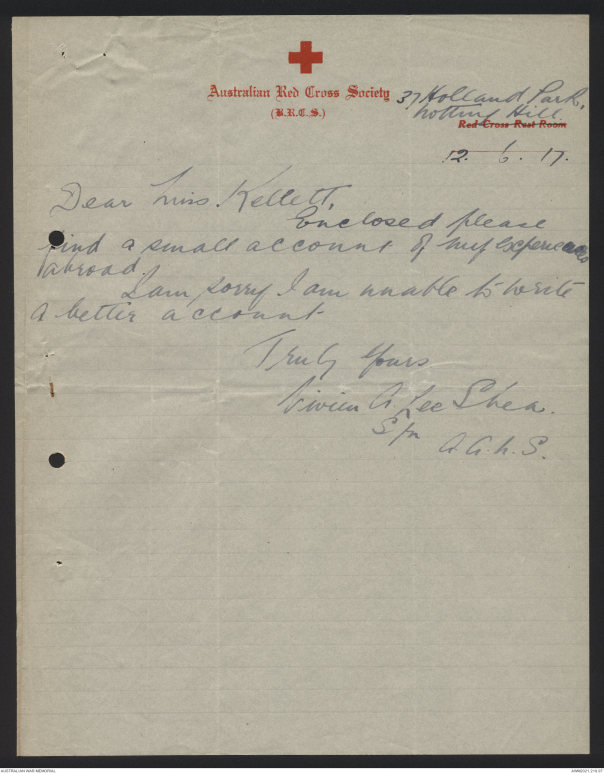
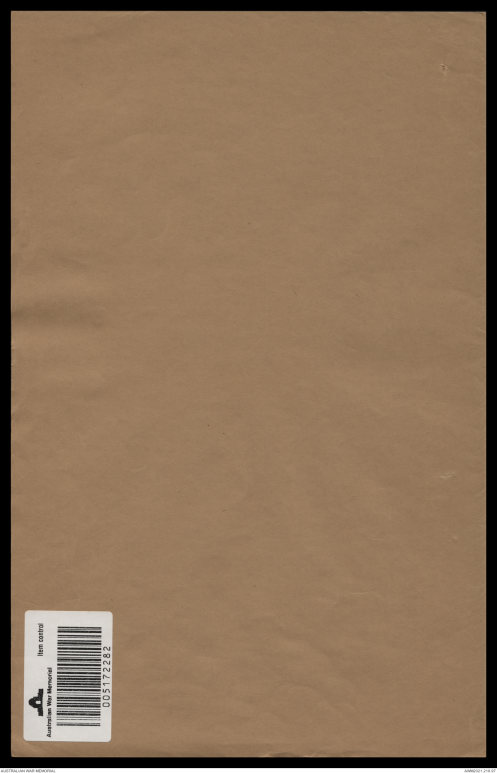
[*Butler Collin.*]
AWM 41
6/44
[* 6[[?]]
[[?]]
([[?]] *]
AUSTRALIAN
ACCESS STATUS
OPEN
STAFF NURSE VIVIAN A. LEE SHEA.
A.W.M.
LIBRARY
Classn No 373.2
Catd
Illuns
Indexed
Maps
Indexed
[1038]
The Official War Historian of the Commonwealth
Government (Dr. C. E. W. Bean), after his study of the
collection of private war records preserved in the Australian
War Memorial Library, wrote:
"The private diaries in this collection furnish some of its most
valuable historical records, but, like all private memoirs which were
not compiled with any historical purpose, they should not be
regarded as first-hand evidence except where it is certain that they
are so. The diarist is almost always sincere in his desire to record
accurately, but he is subject to no obligation or inducement to
indicate whether he is recording his own observations or incidents
told to him by friends or heard at third or fourth hand at the mess-table.
Thus, in some of the diaries in this collection, scenes described with
vivid detail, and without warning that they are told at second
or third hand, have been found to be completely inaccurate in
important details. A certain number also have been written up
or revised long after the events, though doubtless usually from notes
made at the time. In most cases the student must rely on his
experience and on internal evidence to guide him in judging what is
and what is not likely to be historically accurate."
[*Miss V. Shea*]
84/115*]
Australian Red Cross Society
(A.R.C.S.)
Red Cross Rest Room
We left Australia in June 1917 almost
300 Sisters on board the R.M.S. Mooltan
in route for Salonika.
We comprised four nursing units
lent to the R.A.M.C. by the Australian
Government for service in Salonika.
We arrived in Salonika in August &
on arrival were drafted, according to
our units, to the various British
General Hospitals we were to staff.
No 1 unit from Victoria staffed the
66th General Hospital. No 2 unit from
New South Wales went to 50th General.
The 3rd & 4th units were made up of
Sisters from all the States & Tasmania
& staffed the 60th & 42nd General
Hospitals respectively.
I belonged to the 3rd unit & went to
60th General a Hospital situated
on a plateau fifteen kilos from
the City & Port.
We arrived in the midst of summer
& the height of the Malaria & Dysentry
season, & work commenced right
away. We had much to learn
Australian Red Cross Society
(A.R.C.S.)
Red Cross Rest Room
We were all new to each others ways & the
medical Staff & personnel had only
just landed as we ourselves had.
The Hospital was rather well
situated at an elevation of about
2000 ft above sea level & this gave
us a cooler summer, but made it
impossible to live there in the winter
months.
During the winter months we occupied
the Prisoners of War Hospital in
the Base area.
Here we nursed British Troops, as
well as Prisoners of War, the latter
were representatives from practically
every one of the Balkan States. Germans
Bulgars, Turks, Ronmanians, Greeks
Albanians & Serbs, in fact any one
found in enemy lines.
Salonika was quite a large city
modern in parts but largely occupied
by Turks & Spanish Jews.
Much of the modern position of the
city was destroyed by the big fire
of 1917 just six days after our landings.
No European civilians lived there
Australian Red Cross Society
(A.R.C.S.)
Red Cross Rest Room
at all, & with the exception of Regimental
Concerts or Football matches the
British troops had no means of
recreation, leave was a thing read
of in home papers but only realised
by a minute percentage of the men.
We had two summers and almost
two winters out there. After the Armistice
all troops began very slowly to evacuate.
Hospitals closed & in February 1919
the last of the Australian Nursing Service
left Salonika.
We came over to England for
embarkation to Australia at the
expiration of our leave.
V.A. Lee Shea
Australian Red Cross Society
(A.R.C.S.)
37 Holland Park
Notting Hill
Red Cross Rest Room
12.6.17
Dear Miss Kellett,
Enclosed please
find a small account of my experiences
abroad.
I am sorry I am unable to write
a better account.
Truly yours
Vivian A. Lee Shea
S/n
A.G.N.S.
Item Control
Australian War Memorial
Barcode - see original document
005172282
 Sam scott
Sam scottThis transcription item is now locked to you for editing. To release the lock either Save your changes or Cancel.
This lock will be automatically released after 60 minutes of inactivity.